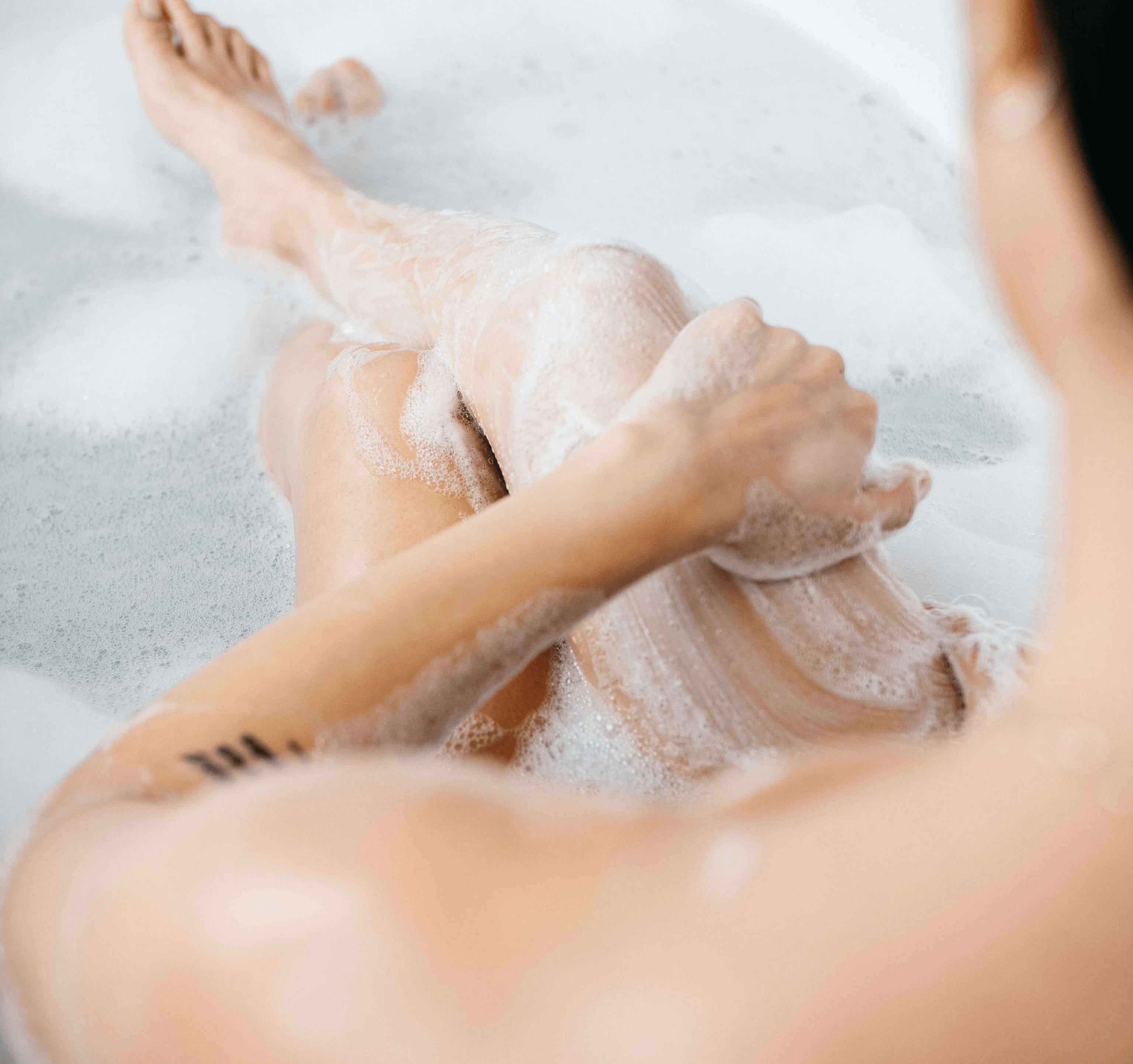Eczema is a chronic skin condition that affects people of all ages. Managing it can be frustrating, especially during flare-ups. This post will guide you through how to avoid common triggers and turn bathing into a soothing, eczema-friendly routine.
What is Eczema?
Eczema, or atopic dermatitis, shows up as red, inflamed, itchy, and super dry patches of skin. It happens when the skin's barrier isn’t holding up like it should, leaving your skin more vulnerable to dryness and irritation. Those flare-ups can come and go, but understanding how to manage them can make all the difference. Although eczema is common in kids, it can affect anyone at any age.
There are several types of eczema, like atopic dermatitis (the most common), contact dermatitis (from irritants or allergens), and dyshidrotic eczema (which causes small, itchy blisters), to name a few. Knowing which type you’re dealing with can help you figure out the best way to manage it.
Why Knowing Your Eczema Triggers is Important
Eczema triggers vary from person to person. What aggravates one person's eczema may not affect another. Understanding your unique triggers helps you to create a customized skincare routine and lifestyle adjustments that are more effective for you.
It's important to pay attention to your own body and notice what seems to set off your eczema, as everyone’s triggers are different. Observing and keeping track of how your skin reacts can make all the difference in managing your flare-ups.
Common Triggers to Watch For
Dry Skin: Eczema tends to thrive on dry skin. When your skin isn’t hydrated enough, it weakens your skin’s barrier and makes irritation more likely. Keeping your skin moisturized is key to reducing flare-ups.
Stress: Believe it or not, stress can worsen your eczema flare-ups. When you're stressed, your body releases hormones like cortisol, which suppresses immune system and increases inflammation, weakening your skin’s barrier. Taking care of your mental health is just as important as your skincare routine!
Irritants: Soaps, shampoos, and even household cleaners can irritate your skin and its natural oils. Keep an eye on products that have harsh ingredients, like sulfates, parabens, or artificial fragrances.
Other Triggers:
- Metals like nickel (common in jewelry).
- Weather changes, such as dry, cold air or excessive humidity.
- Rough fabrics like wool that can rub your skin the wrong way (literally).
- Allergens such as pet dander, pollen, or dust mites.
- Harsh chemicals in skincare or cleaning products.
Why Bathing Helps Relieve Eczema Flare-ups
Bathing or showering is the best way to bring moisture back to your skin. When done properly, it hydrates your skin and makes it more receptive to moisturizers. The key is to keep baths short (about 10-15 minutes) and avoid harsh soaps. Make sure to moisturize immediately after bathing to lock in the water, helping to restore your skin’s barrier.
This technique is known as the Soak and Seal Method: First, soak your skin in the bath to rehydrate it, and then seal in all that moisture with a thick moisturizer or ointment while your skin is still slightly damp. This helps to repair your skin’s protective barrier and can reduce the severity of flare-ups.
Ingredients to Avoid in Bath Products
Managing eczema means knowing what ingredients to steer clear of. Some bath products can be loaded with things that are harsh on sensitive skin. Here's what to avoid:
- Artificial Fragrances: These can lead to allergic reactions and make eczema worse. Go for fragrance-free or naturally scented products.
- Sulfates (SLS): These can strip your skin of its natural oils, making it even drier.
- Parabens: These preservatives can irritate sensitive skin.
- Alcohol-Based Ingredients: Alcohol can dry out and irritate the skin.
- Dyes: Skip anything with artificial colorants—they can cause allergic reactions.
- Harsh Exfoliants: Opt for gentle exfoliation with something like oatmeal instead of rough scrubs.
- Irritating Essential Oils: Oils like peppermint or citrus can be too harsh. Instead, try gentler ones like chamomile.
Special Baths for Eczema Relief
Here are some bath ideas that not only help soothe eczema but can also become a relaxing, healing ritual.
Oatmeal Baths
Oatmeal is a classic remedy for itchy skin. It’s gentle, moisturizing, and helps soothe inflammation. You can add colloidal oatmeal to your bath or make a paste to apply to specific irritated areas. It’s an easy and natural way to calm your skin.
Bath Oils
Adding oils to your bath can help prevent the dryness that often leads to eczema flare-ups. Look for fragrance-free, gentle oils like coconut oil or even olive oil. These help to lock in moisture without irritating sensitive skin.
Bleach Baths
If your eczema is prone to infection, a bleach bath can help reduce bacteria on the skin. Diluting a small amount of bleach in your bathwater (half a cup in a full tub) can help reduce flare-ups. Just be sure to check with your doctor before trying this method, as it requires careful caution.
Saltwater Baths
Saltwater baths, particularly with Epsom salts, can reduce inflammation and encourage healing. The minerals found in Epsom salt, like magnesium, are known to soothe irritated skin and boost hydration. Inoki Bathhouse’s Nordic Lagoon Tea Bath are great option for a saltwater bath—designed with anti-inflammatory ingredients like Epsom Salt and Magnesium that are perfect for dry, eczema-prone skin.
Tea Baths
Yes, tea baths! Ingredients like chamomile, calendula, and green tea are known for their anti-inflammatory properties, helping to reduce redness and soothe irritated skin. The antioxidants in tea help protect the skin’s barrier, providing relief from itching and discomfort. Inoki Bathhouse offers a variety of tea bath blends that are crafted specifically for sensitive skin, including options designed to hydrate and calm eczema-prone skin.
More Skin-Care Tips for Managing Eczema
- Moisturize immediately after your bath to lock in hydration.
- Use gentle, eczema-friendly lotions and ointments designed for sensitive skin.
- Stick to lukewarm water and avoid hot showers, which can strip your skin’s moisture.
- Pat your skin dry with a soft towel—no harsh rubbing!
- Wear breathable fabrics like cotton to avoid irritating your skin.
- Reduce stress with mindfulness or relaxation techniques like breathwork. Inoki Bathhouse offers guided breathwork sessions designed to help you unwind and improve your skin health.
Resources
- https://nationaleczema.org/eczema/causes-and-triggers-of-eczema/
- https://my.clevelandclinic.org/health/diseases/9998-eczema
- https://nationaleczema.org/eczema/treatment/bathing/#:~:text=However%2C too much contact with,and become dry and irritated
- https://nationaleczema.org/blog/8-skincare-ingredients-to-avoid/
- https://www.aad.org/public/diseases/eczema/types



Leave a comment